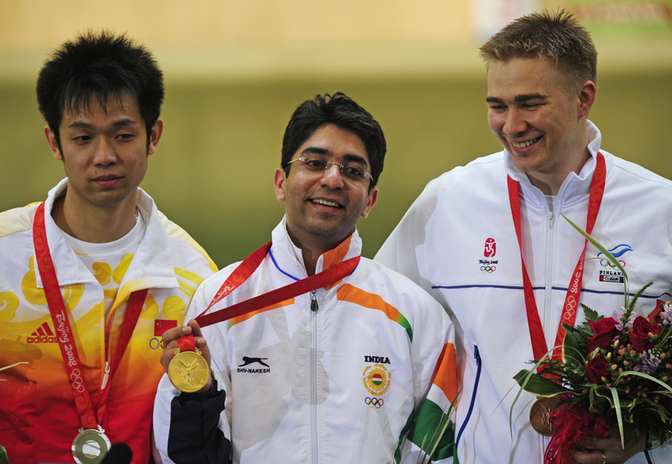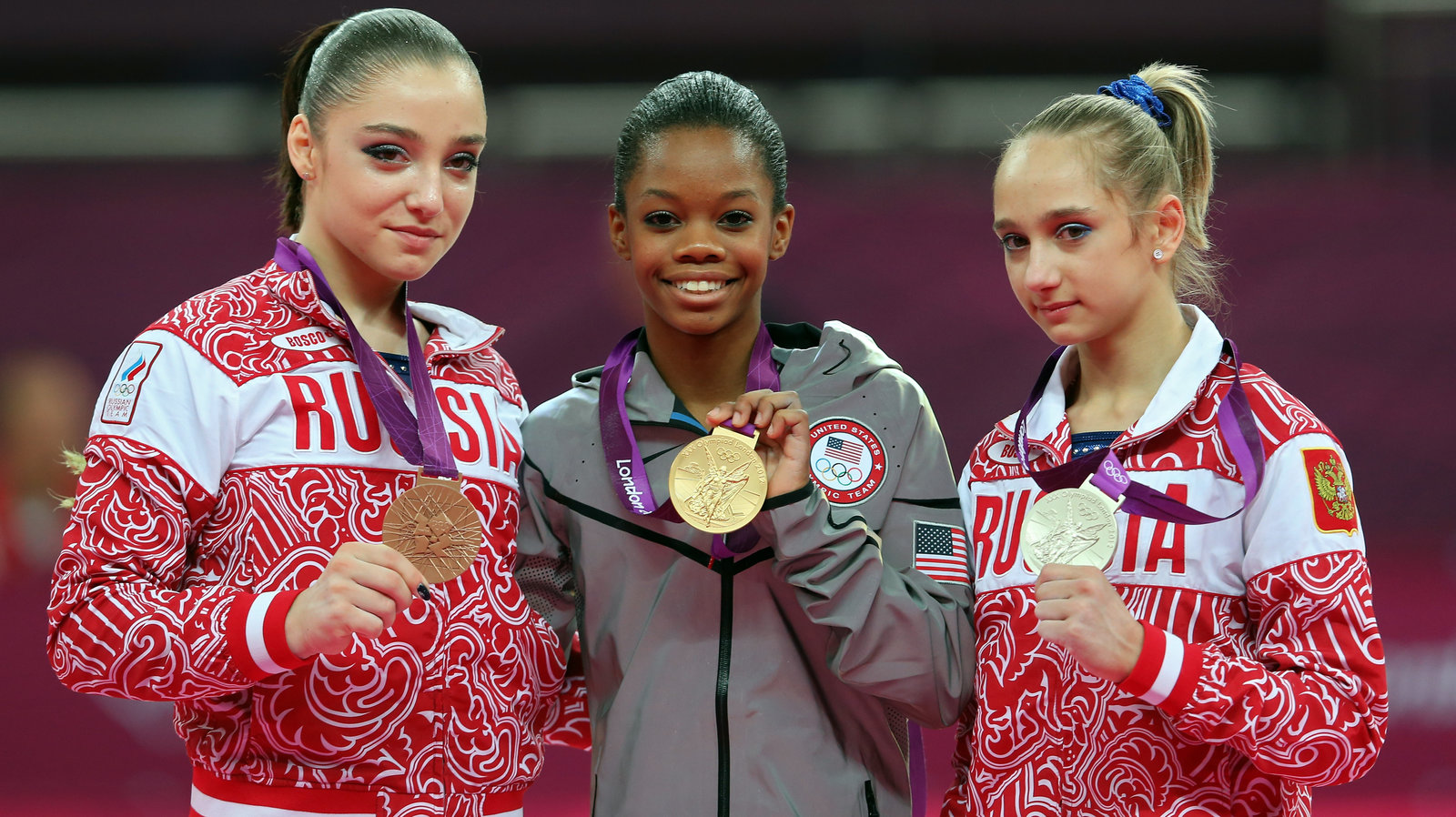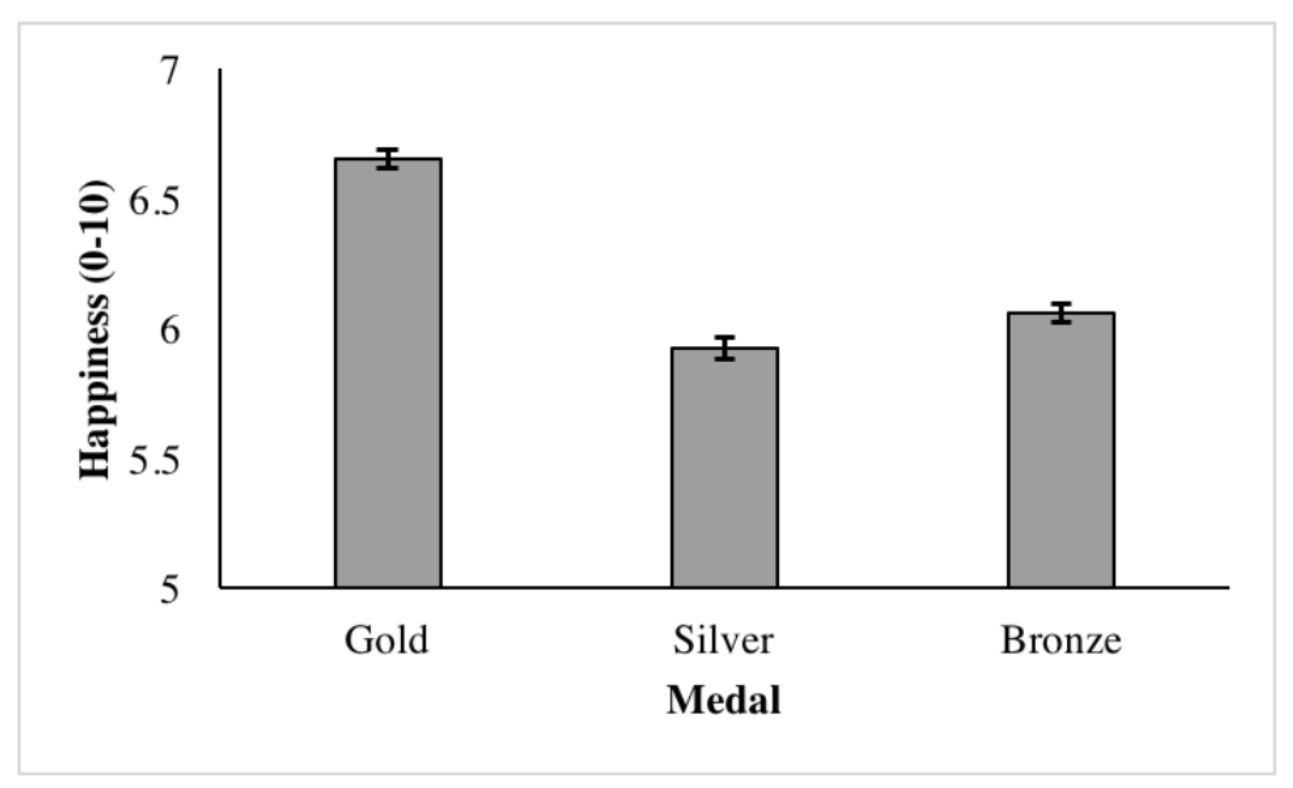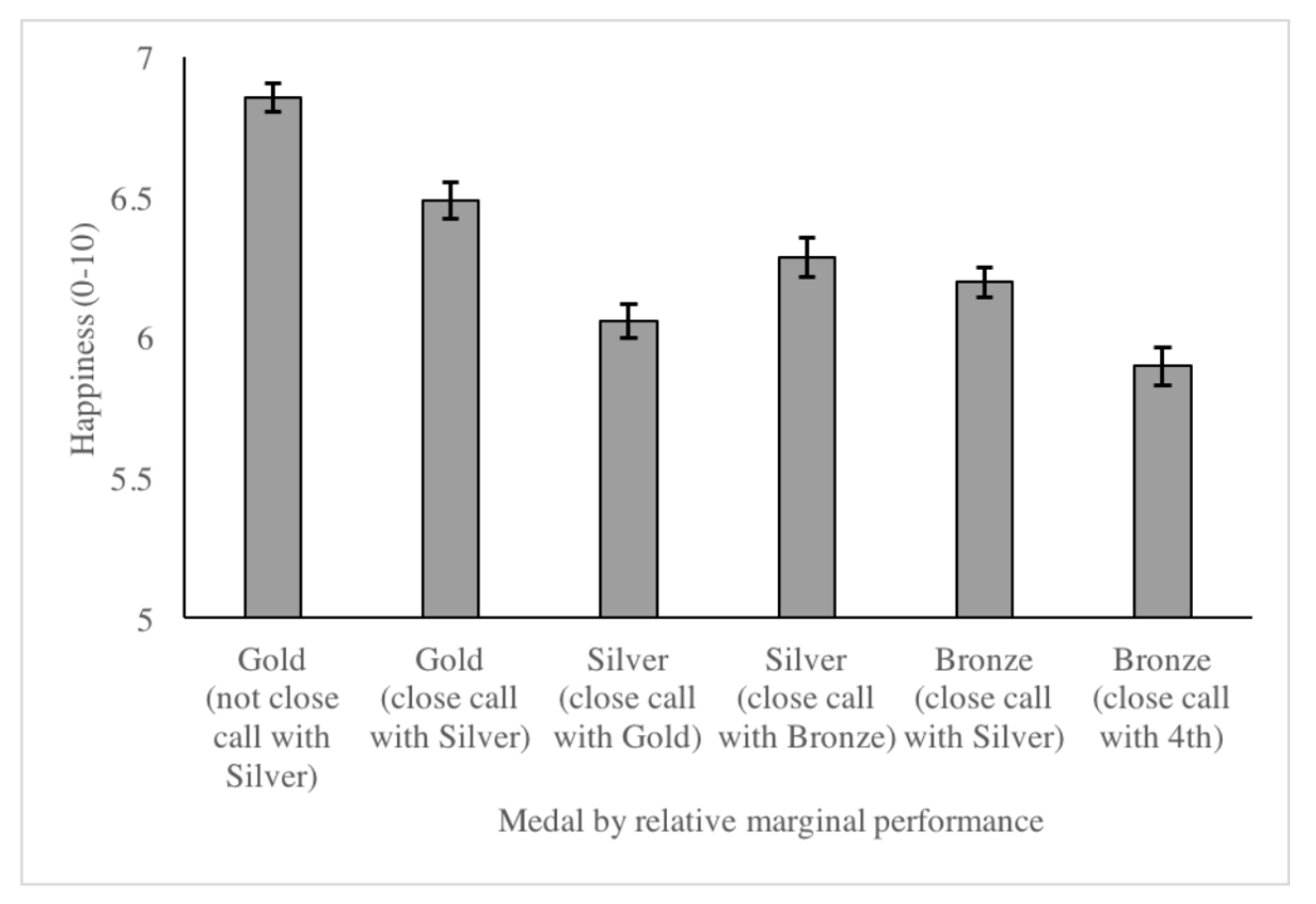Bronze is better than silver, or how alternatives affect the happiness of an athlete

The moment you won the 26th gold medal in the history of India’s participation in the Olympics
Any medal at the Olympics is a great achievement for an athlete. But what will make a person happier - to finish second or to win bronze? Look at this photo and compare the expression of the faces of the medalists.
Psychologists have long paid attention to the fact that athletes think about an alternative scenario. The silver medalist understands that he was the closest to gold, and the bronze winner is happy that he has risen to the podium at all, and has not shown the fourth result.
New research has confirmed this opinion.
Two American swimmers at the 2012 Olympics after the completion of the swims commented on their results. One of them said: "This is not my discipline. There was a very hard swim - and I did not come with the best result." The second, smiling happily, said: "I had the opportunity, and I used it. I worked for this. It is wonderful that today I can climb the podium. Honestly, I'm really proud of myself!"
Frustrated athlete name is Ryan Lochte. These words he said after the 4x100 relay. The lucky swimmer was Brendan Hansen, he commented on his result in the hundred meters.
And the most interesting - Lochte won silver, and Hansen, overflowed with delight, won the bronze. And added: "This is the most brilliant bronze medal you have ever seen."
American psychologist William James over a hundred years ago noted: "We are dealing with the paradox of a man who died of shame because he became the second boxer or rower in the world: because he can win the entire population of the globe, minus one person."

Aliya Mustafina (bronze), Gabby Douglas (gold), Victoria Komova (silver). Gymnastics, London 2012.
For decades, psychologists have noted the irony in the competition of elite athletes. If you do not take into account the gold medalists, and look only at the second and third steps of the pedestal, men and women with bronze medals invariably look happier than silver medalists.
Researchers after the Olympic Games in Barcelona in 1992 published the results of the analysis of photos of athletes on a pedestal and studied their interviews. Sports excluded from the study, in which the final determines the first and second places. In this case, the winner of the just-held match for bronze will obviously be happy more than the loser of the match for gold.
The study showed that athletes are more pleased with third place. Psychologists suggest that silver medalists compare their results with winners. Bronze, by contrast, think of athletes who did not receive a medal at all.
In 2016, another team of researchers used video from the British Olympic and Paralympic teams from the medal presentation ceremonies at the 2012 London Olympics. We chose one team for analysis, since different vital indicators - income level, education - affect what a person is able to feel in a certain situation.
The cadres got rid of medals - so that their color did not influence the observer's opinion on the athlete's mood - and provided brief information about the medalist. This treatment focused the attention of observers on the face of athletes. The videos contained the first five seconds after the athletes entered the podium.
Based on the watched videos, the observers answered the questions used in the 1995 survey:
How do you assess the emotions on the athlete's face on a scale from 0 to 10, where 0 is agony and 10 is ecstasy?
How do you assess the emotions on the athlete's face on a scale from 0 to 10, where 0 is not at all happy, and 10 is absolutely happy?

The level of happiness of athletes, depending on the medal

Level of happiness depending on the result
The mood of the athletes also depended on their results. Gold medalists, whose results were as close as possible to second place, were less happy than the winners with a large margin. And vice versa - silver medalists were more pleased that they did not become bronze, having shown a result close to them, and were upset that they were on the verge of victory.
